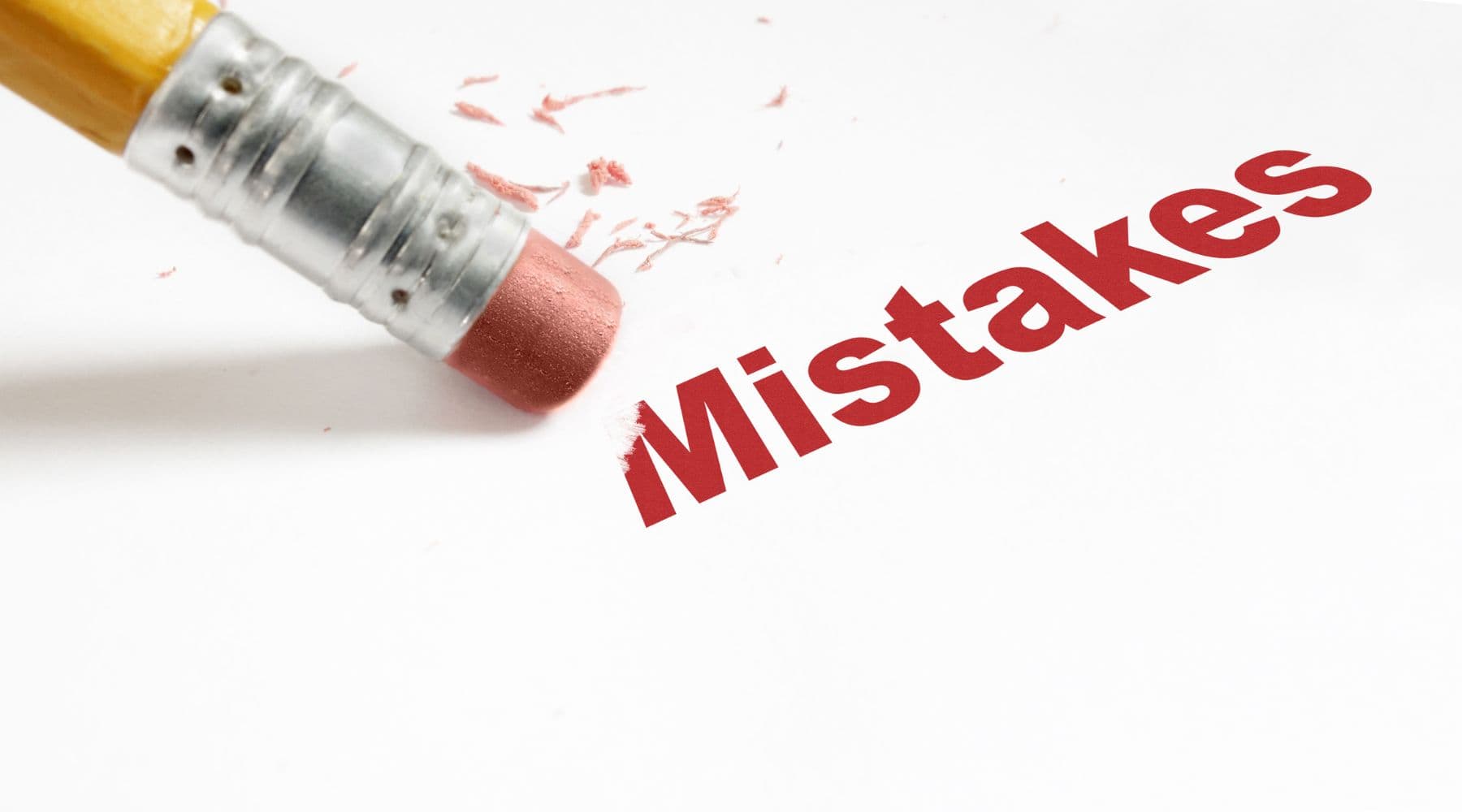
12 Mistakes Every Personal Representative Must Avoid
In this comprehensive guide, we will explore the key aspects of probate administrations, including the probate process, common mistakes to avoid, and the importance of seeking professional assistance from a probate and trust administration attorney in Florida.
Whether you are a Personal Representative or an individual seeking information about estate and trust administrations, this guide will provide you with valuable insights to navigate the probate administration journey successfully.
Understanding the Probate Process:
Probate is the legal process of validating a decedent’s will, if there is one, and ensuring the proper distribution of assets according to the wishes of the deceased individual or Florida’s intestacy statute where there is no will. In Florida, the Probate Administration process is overseen by a Judge, who appoints a personal representative to administer the decedent's estate. Florida’s probate court ensures that the decedent's creditors are paid and that the remaining assets are distributed to beneficiaries as outlined in the will or according to Florida law. The probate process can be incredibly complex, especially when dealing with significant assets, multiple parties, and the emotions of the survivors. It is crucial to be aware of potential pitfalls and avoid common mistakes to ensure a smooth Probate Administration.
1. Waiting Too Long to Open the Estate
One of the most common mistakes made by personal representatives is delaying the opening of the estate. It is essential to contact a qualified estate and trust administration lawyer to initiate the probate process within a reasonable timeframe after the individual's death. Delaying this process can result in accumulating bills, taxes, and creditor claims, adding unnecessary financial burden to the estate. As a personal representative, your responsibility is to administer the estate promptly, ensuring that creditors are satisfied, assets are distributed, and the estate is closed.
2: Failing to Advise the Heirs or Beneficiaries
Communication is key in a Florida probate administration. As a personal representative, you have a Fiduciary Duty to Inform and update the heirs or beneficiaries throughout the probate process. Failure to communicate effectively can lead to misunderstandings, mistrust, and potential legal challenges. It is crucial to be transparent, keep the heirs informed, and address any concerns or questions they may have. Building trust and maintaining open lines of communication can help facilitate a smoother probate administration. It is important to note that the attorney for the personal representative cannot give legal advice to the beneficiaries, as he or she represents the personal representative in his or her capacity as executor.
3: Failing to Quickly and Properly Take Control of and Protect Estate Assets
Securing and protecting estate assets is a critical responsibility of the personal representative. This is particularly crucial for real estate, as it should be immediately secured against break-ins and trespassers. Maintaining property insurance, preventing delinquent taxes and mortgages, and maintaining the property's overall condition are essential. If you are not geographically close to the property, working with a reputable realtor or property manager experienced in selling or managing properties involved in probate proceedings can help you satisfy these responsibilities effectively.
4: Not Picking Up Mail from Decedent's Property
To stay informed and avoid missing important notices or creditor claims, it is crucial to redirect mail from the decedent's property to a designated address. Contacting the local post office and requesting mail forwarding ensures that you receive essential documents, statements, and notifications related to the estate. All statements from creditors should be provided to your attorney for inclusion in the probate proceeding. Neglecting mail can even signal to potential burglars or squatters that the decedent’s property is vacant, posing additional risks to the estate assets you are responsible for protecting.
5: Getting Guidance from the Wrong People
Probate and estate administrations require specialized knowledge and expertise. While seeking advice from friends or family who may have legal backgrounds can be tempting, it is essential to consult with qualified professionals licensed to practice law in the appropriate state. Hiring an experienced estate administration and probate attorney who understands the intricacies of the process and can guide you through the probate court's requirements is crucial. Additionally, enlisting the assistance of other professionals, such as realtors, tax advisors, and financial planners, can ensure an effective estate administration in compliance with various laws, rules, and regulations.
6: Confusing Probate and Non-Probate Assets
Understanding the distinction between probate assets and non-probate assets is vital in a probate administration. Probate assets are those solely owned by the decedent or owned as tenants in common with others, while non-probate assets pass directly to Beneficiaries or joint owners outside of probate. Differentiating between these two types of assets, such as property held in joint tenancy or assets with named beneficiaries, ensures a clear understanding of which assets are subject to probate administration and which ones transfer outside of the probate process.
Learn about Personal Representative Eligibility and Duties
7: Not Knowing How to Properly Value Estate Assets
Properly valuing estate assets is crucial to ensure accurate distribution and tax obligations. Independent third-party appraisers can assess the value of personal property, including furniture, vehicles, and household items. Further, independent third-party appraisers can assess the value of real property depending on market conditions using appraisals or comparative market analysis as a basis for valuation. Understanding the potential tax implications and seeking professional advice can help avoid unnecessary tax burdens.
8: Failing to Prepare an Accurate Inventory of Assets
Filing an accurate inventory of estate assets is a critical step in the probate process. The inventory provides a snapshot of the decedent's assets as of their date of death along with their respective values. Personal representatives must report all assets in the deceased's name, excluding non-probate assets, and understand the types of assets that pass through the estate. It may even be necessary to investigate and locate assets that might not be immediately evident. This process can be challenging but is essential to ensure a complete administration of the decedent’s estate.
9: Not Keeping Accurate Accounting Records
Maintaining accurate records of all estate transactions is vital for personal representatives. The personal representative must track all additions, losses, expenses, and gains of the estate assets. These records are necessary to prepare a fiduciary accounting, as required under Florida law, which details the financial aspects of the estate administration and ensures proper final distributions. Accurate accounting records are crucial in avoiding delays, objections, and potential legal challenges to the final accounting of the personal representative.
10: Distributing Assets of the Estate Prematurely
Premature distribution of estate assets can lead to significant complications in a Probate context. Personal representatives must adhere to the appropriate timeline and legal requirements before distributing assets to beneficiaries. Taxes, expenses, and creditor claims must be addressed before any distributions are made. Failure to follow the correct order of payments can result in personal liability for the personal representative or contested distributions from heirs or beneficiaries.
11: Paying Debts and Bills of the Decedent in the Wrong Order
Personal representatives must understand the priority order for paying debts and bills. Creditors have a specific timeframe to file claims against the estate, and their claims must be addressed accordingly. Paying debts and bills out of order can result in personal liability for the personal representative or disputes among creditors and beneficiaries. Following the prescribed order ensures a fair and legal distribution of the estate's assets.
12: Failing to Take Final Steps to Conclude the Estate
Once all necessary tasks, such as selling real property, liquidating accounts, filing tax returns, and paying debts and expenses, are completed, it is time to conclude the estate. Filing a final fiduciary accounting provides a comprehensive overview of the estate's financial status, expenses, and anticipated distributions to beneficiaries. The accounting must be reviewed and approved by the court, and a waiting period may follow to allow for any objections by creditors or beneficiaries. Following the appropriate steps for closing the estate ensures a proper and legally compliant conclusion of the matter.
Seeking Professional Assistance for Probate Administration
Probate administration encompasses various complex legal and financial processes, making it crucial to engage the services of professionals specializing in estate and trust administration. An experienced probate and trust administration attorney in Florida can provide invaluable guidance throughout the probate journey. These professionals understand the intricacies of the probate process, have experience navigating various requirements imposed by the probate courts, and can ensure compliance with all legal requirements. By assembling a team of experts, including attorneys, accountants, and advisors, personal representatives can confidently fulfill their fiduciary duties and efficiently administer the estate.
Unlock the power of your trustee role in Florida. Explore fiduciary duties with confidence in our latest blog.
Conclusion
In conclusion, probate administration is a multifaceted process that demands careful attention to detail, adherence to legal requirements, and effective communication. Personal representatives must be proactive in their approach, avoid common mistakes, and Seek Professional Assistance when needed. By following best practices, personal representatives can navigate the probate process successfully and fulfill their duties with confidence and efficiency. If you find yourself in the role of a personal representative or require assistance with probate administration, consult with a qualified trust attorney or probate attorney to ensure a smooth and legally compliant process. Remember, professional guidance can help alleviate the burdens associated with probate administration and provide peace of mind during a challenging time.

